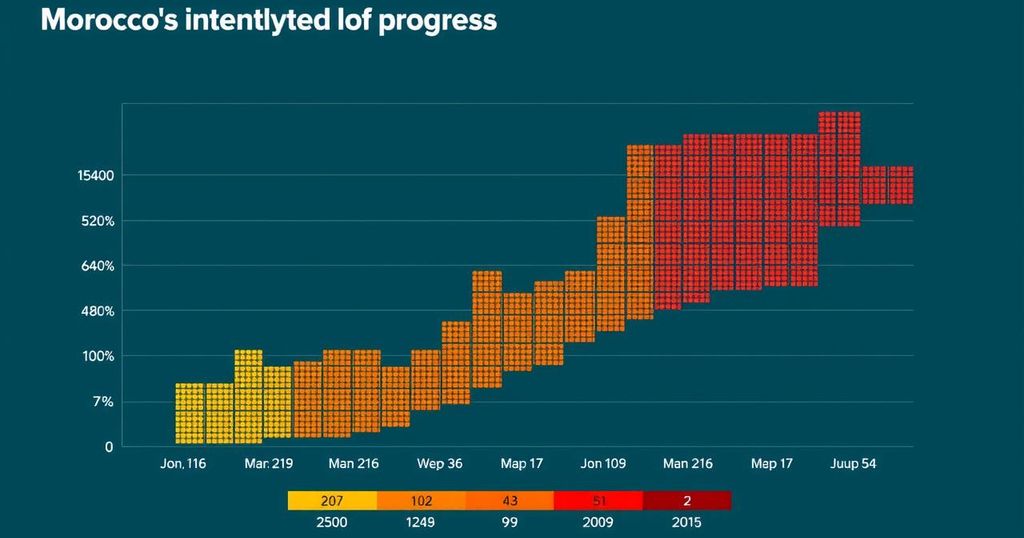Morocco’s Ascendancy in the 2024 Inequality Index: A Post-Earthquake Recovery Perspective

Morocco ascended to 73rd place in the 2024 Commitment to Reducing Inequality Index, attributed to significant post-earthquake spending. This positions Morocco fifth in the MENA region and 11th among lower-middle-income countries. Although the nation has made strides in education budgeting, concerns about the sustainability of its ranking due to wider trends in inequality persist.
Morocco has achieved notable success as it rises in the 2024 Commitment to Reducing Inequality Index, released on Monday, October 21, by Oxfam and Development Finance International (DFI). This year, Morocco has secured the 73rd position in a global evaluation of 164 countries and regions in their efforts to tackle inequality. Ranked fifth in the Middle East and North Africa (MENA) region, Morocco ranks higher than notable countries such as Palestine, Egypt, Iran, and Yemen. In comparison to lower-middle-income countries, Morocco occupies the 11th position, outpacing Bolivia and Egypt. Among the African nations, Morocco trails behind leaders South Africa, Mauritius, and Lesotho, while Norway, Canada, and Australia top the global list. The index assesses countries based on three areas: public services, taxation, and labor, where Morocco’s performance is varied—ranking 90th in public services, 97th in taxation, and an impressive 21st in labor. Morocco’s rise in the index can be attributed to its significant post-earthquake expenditures following the September 2023 earthquake that devastated the nation and resulted in nearly 3,000 fatalities. According to Oxfam and DFI, the country has risen dramatically—by 96 places—largely due to increased spending on relief and reconstruction efforts. The report identifies Morocco as a standout performer in this edition, marking a change of +30 from the previous index. The report also emphasizes that Morocco is one of the top ten spenders on education, having increased the education budget share by 17%. This increase is primarily directed towards rebuilding educational institutions damaged by the earthquake, alongside the implementation of equity-focused initiatives including free school meals and early education programs aimed at addressing stark inequalities in the education sector. However, it is essential to note the caution expressed by the report regarding the sustainability of Morocco’s ranking, as it states that many countries, including Morocco, may not maintain their positions long-term due to shifting policies that often exacerbate economic inequality. Furthermore, an alarming trend is highlighted, indicating that a high percentage of countries are reducing investments in public education, healthcare, and social safety nets, particularly in poorer nations.
The Commitment to Reducing Inequality Index serves as a benchmark for assessing how countries prioritize and implement measures against economic inequality. The 2024 index has particularly scrutinized nations following crises, especially in light of the significant impact of recent natural disasters, such as the earthquake in Morocco. This report is crucial for understanding the broader implications of government spending and policy-making on the welfare of various population segments, highlighting ongoing disparities in access to essential services.
In conclusion, Morocco’s remarkable ascent in the 2024 Commitment to Reducing Inequality Index illustrates the impact of substantial investment in post-disaster recovery and public services. Despite this notable progress, the sustainability of these gains remains uncertain amidst broader global trends of inequality exacerbation. Continuous and equitable investment in vital sectors, particularly education and healthcare, will be essential for Morocco to maintain its position and address long-standing issues of inequality.
Original Source: en.yabiladi.com








